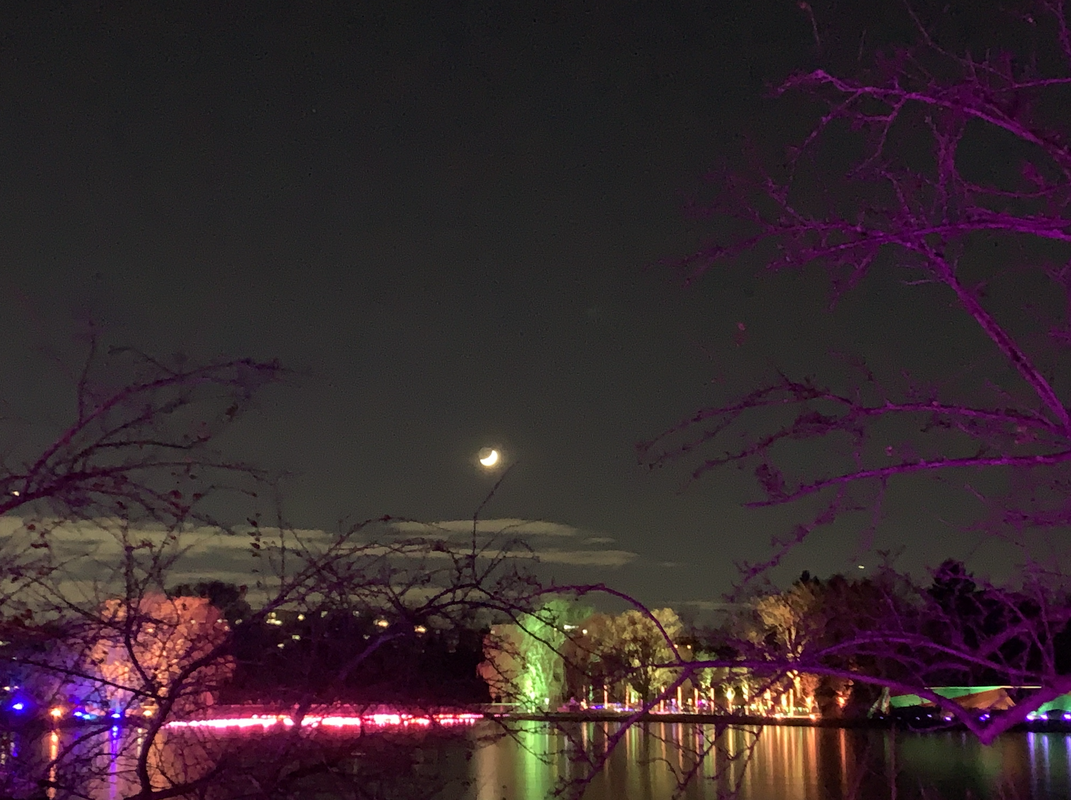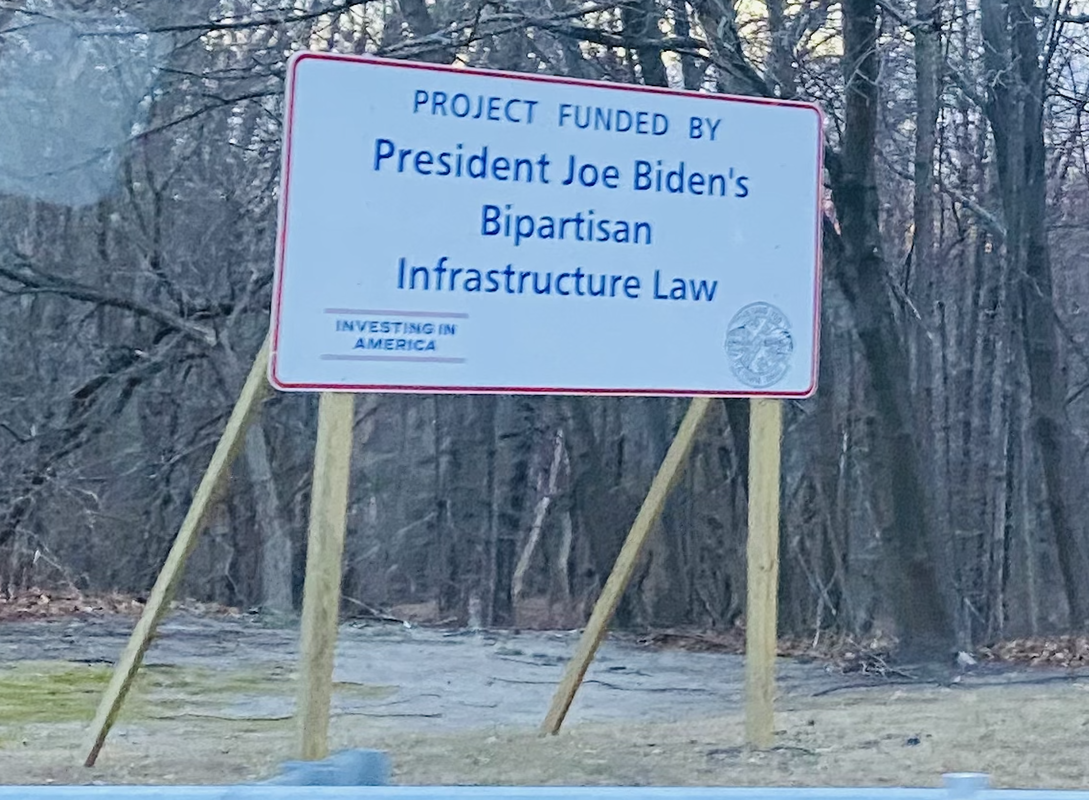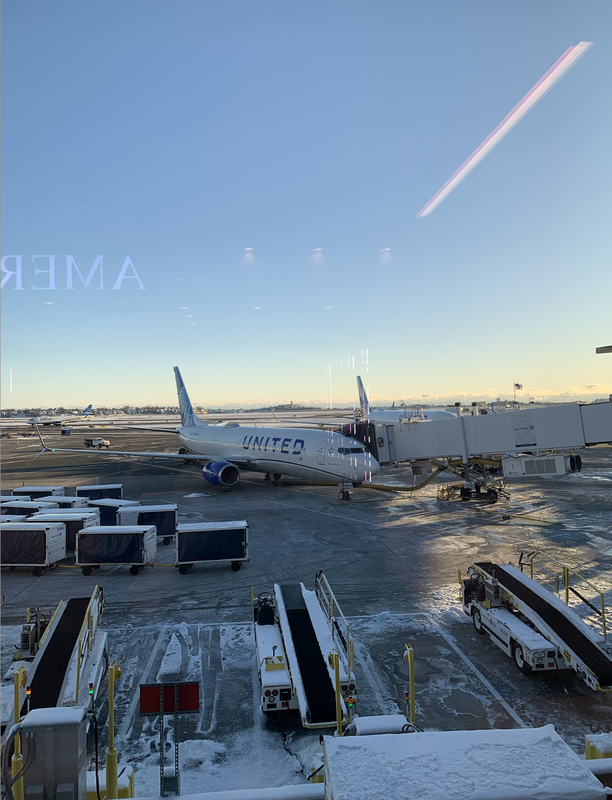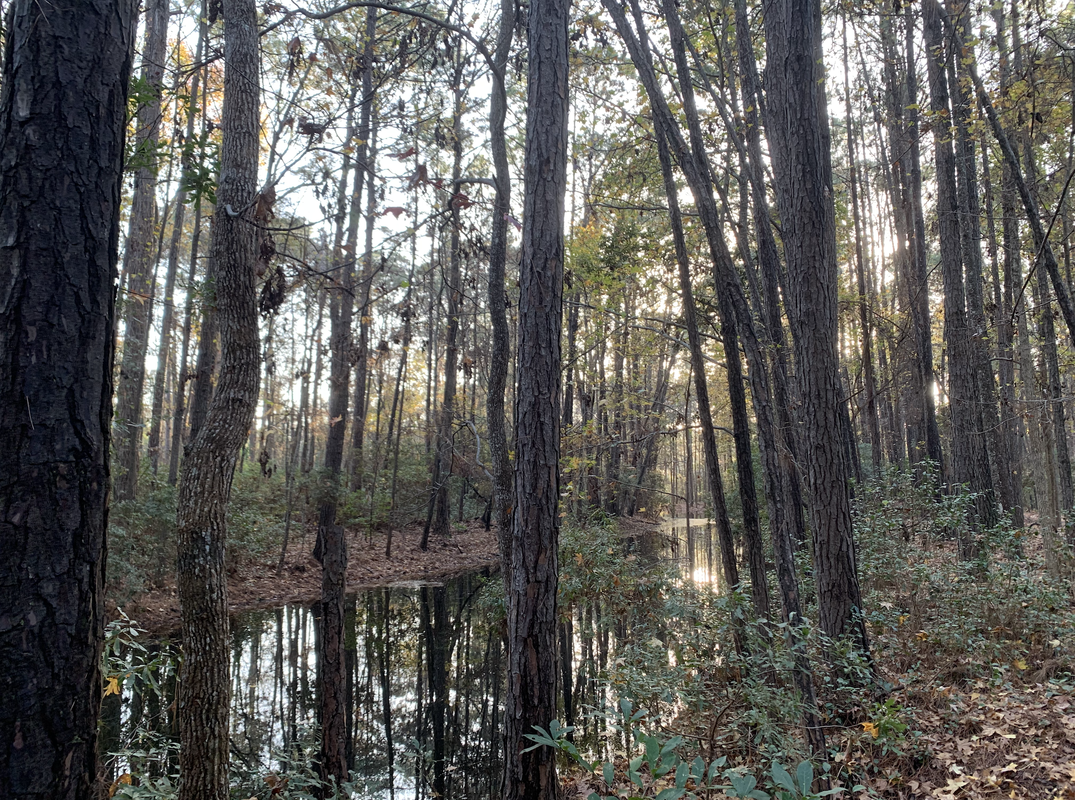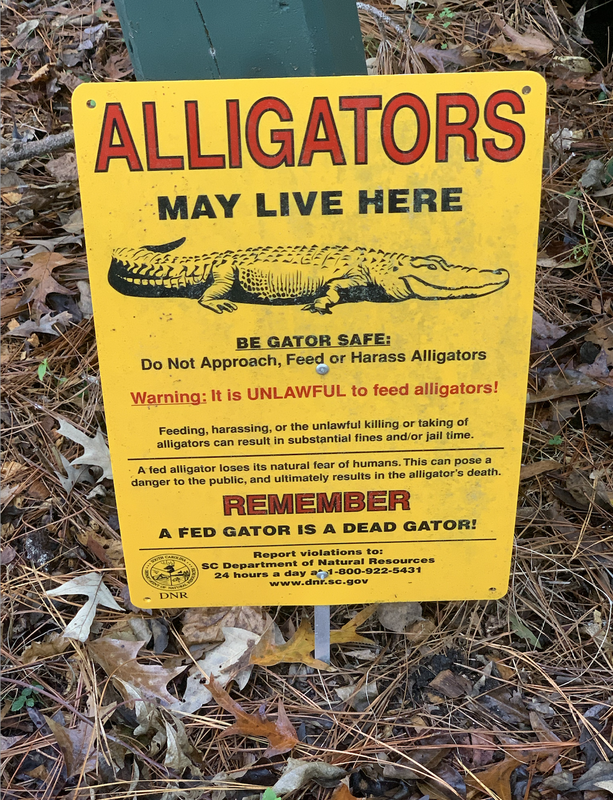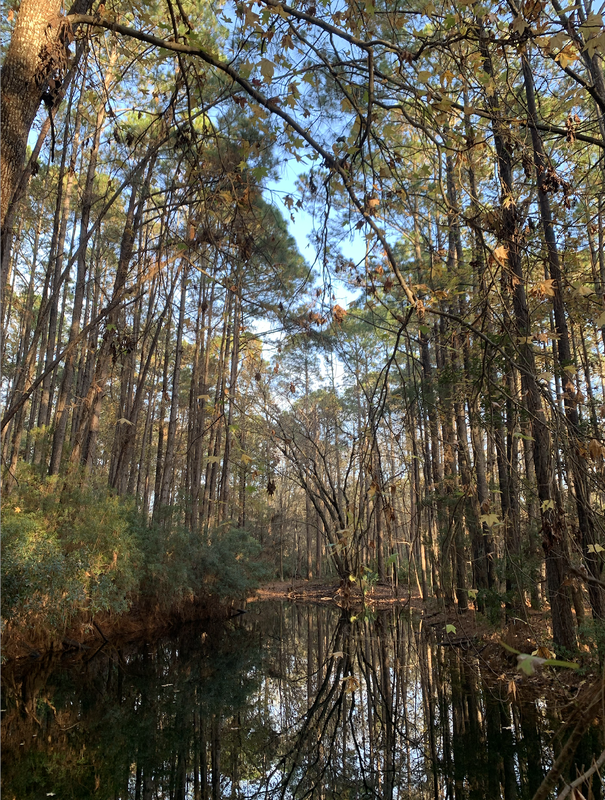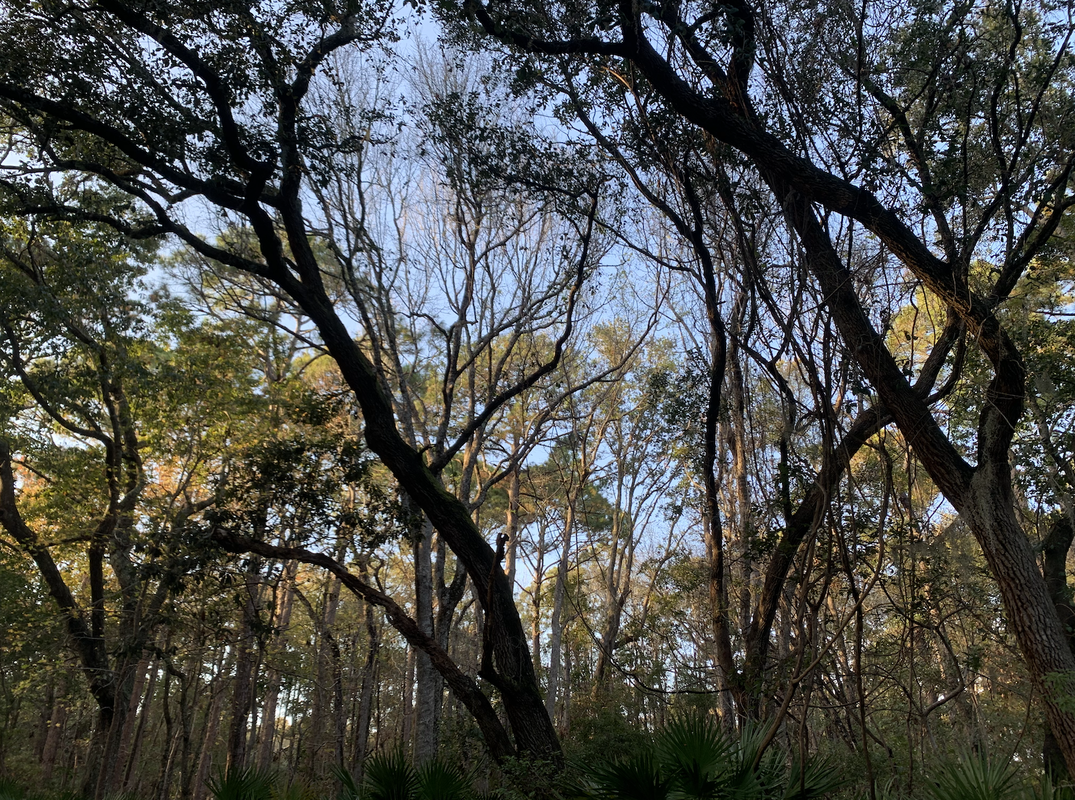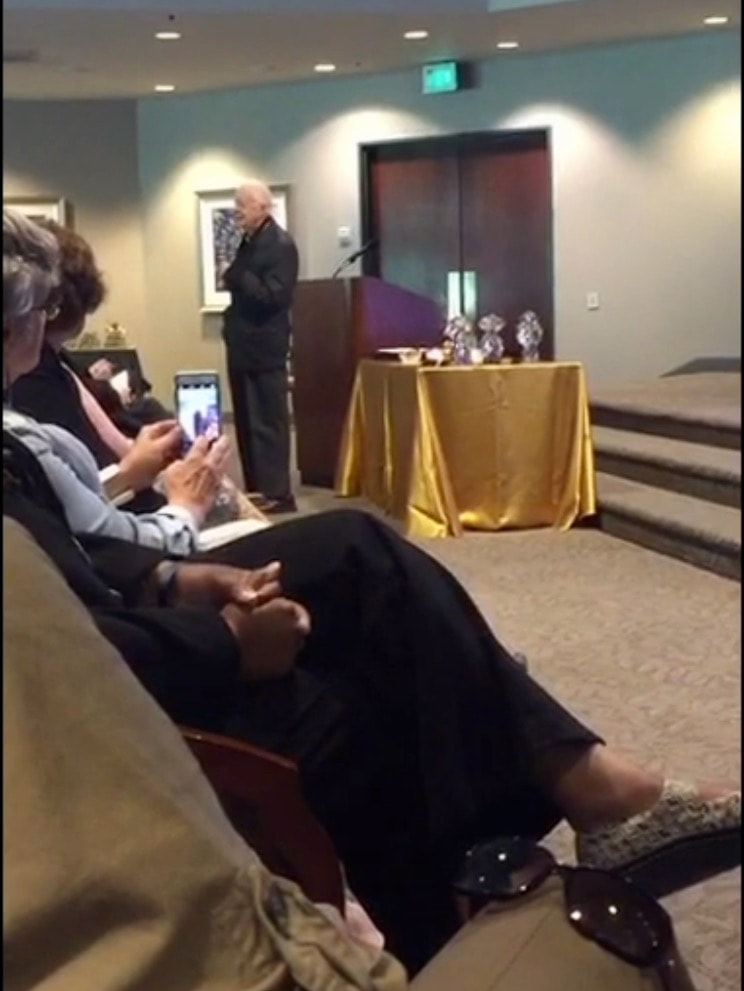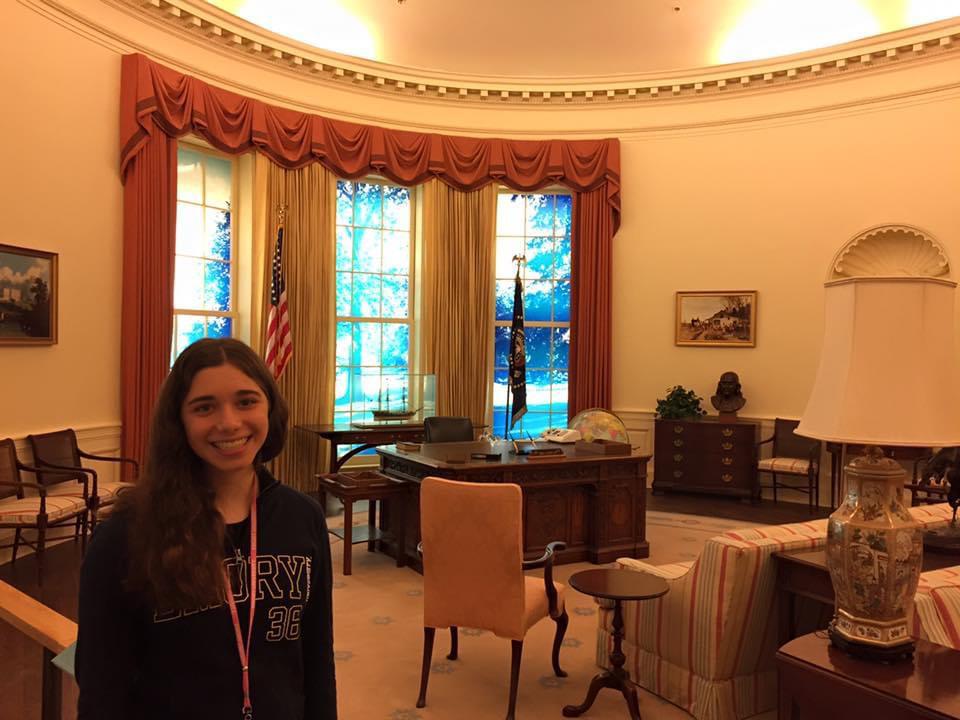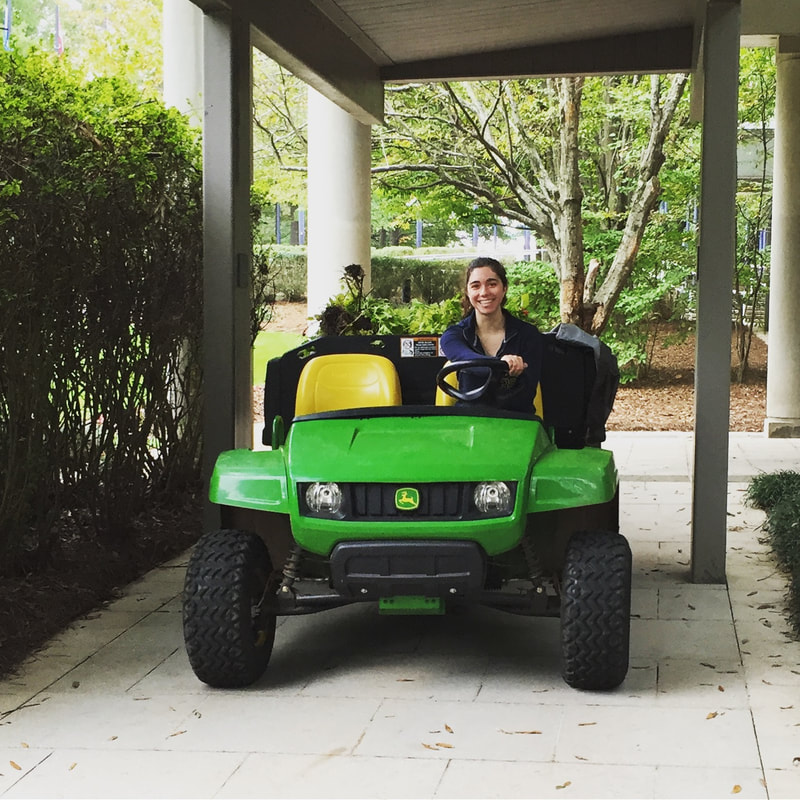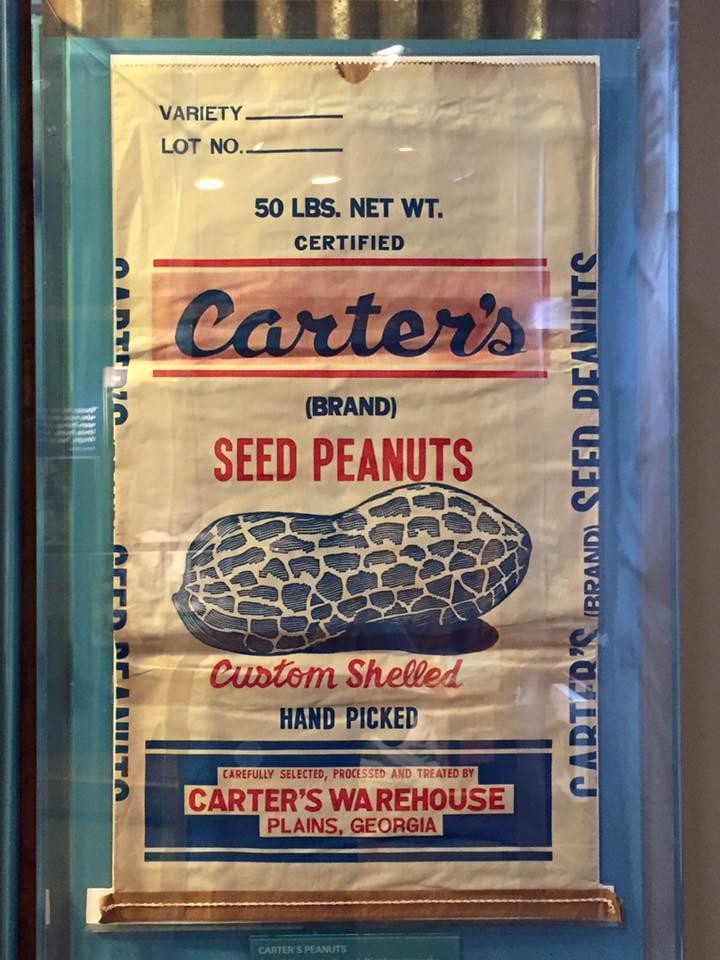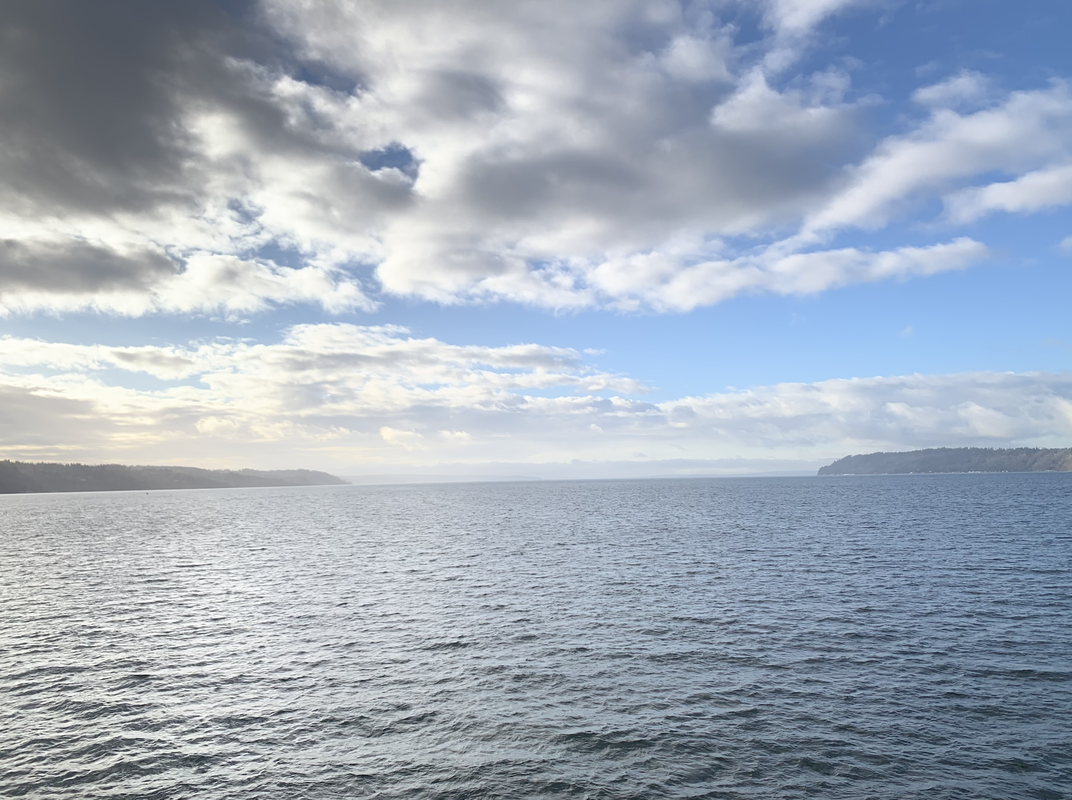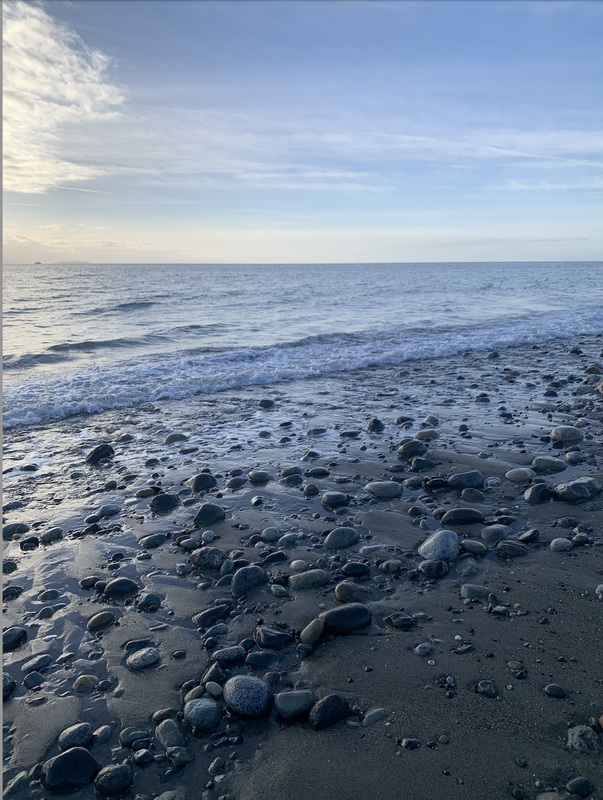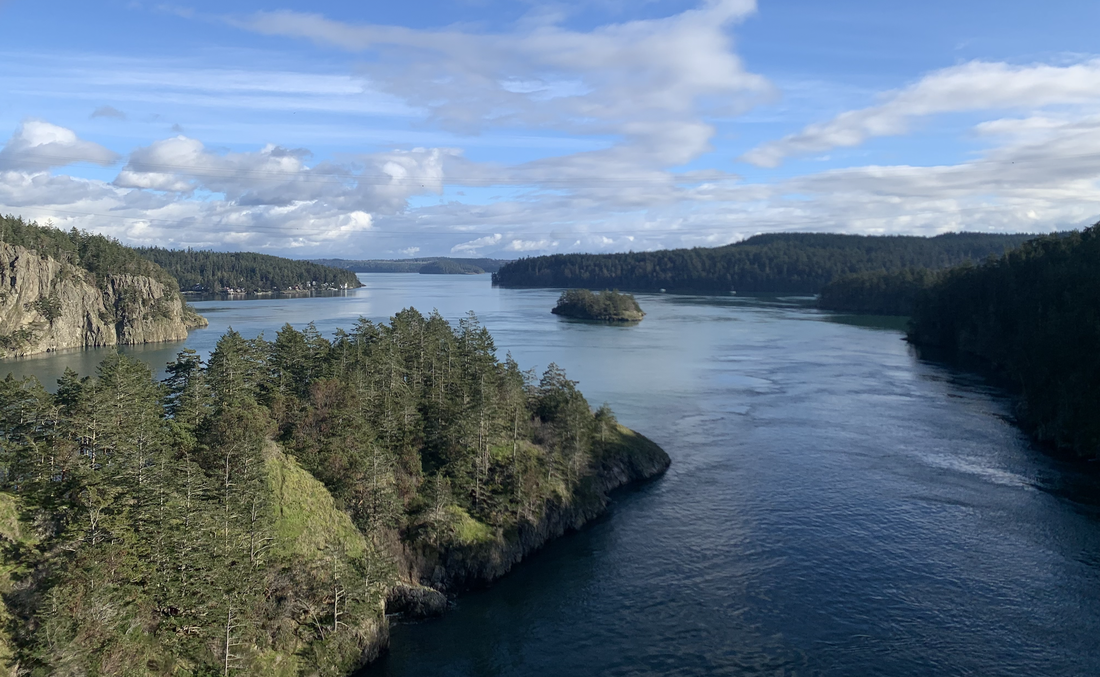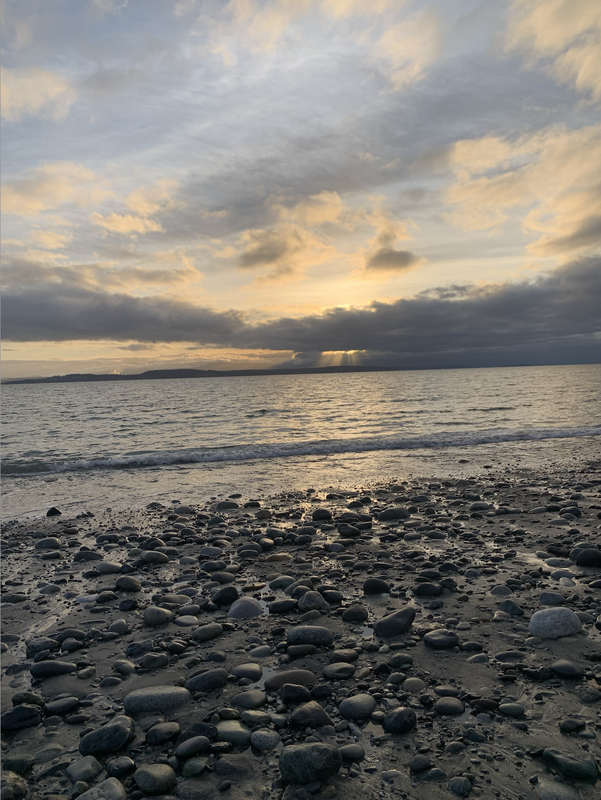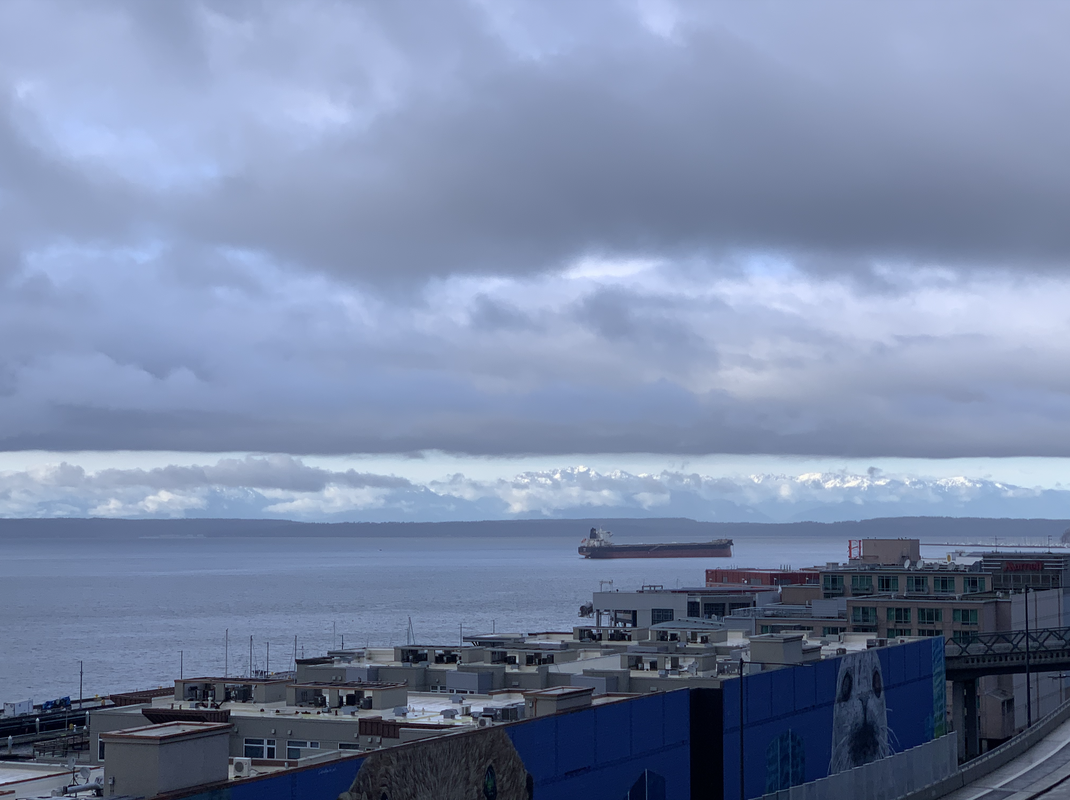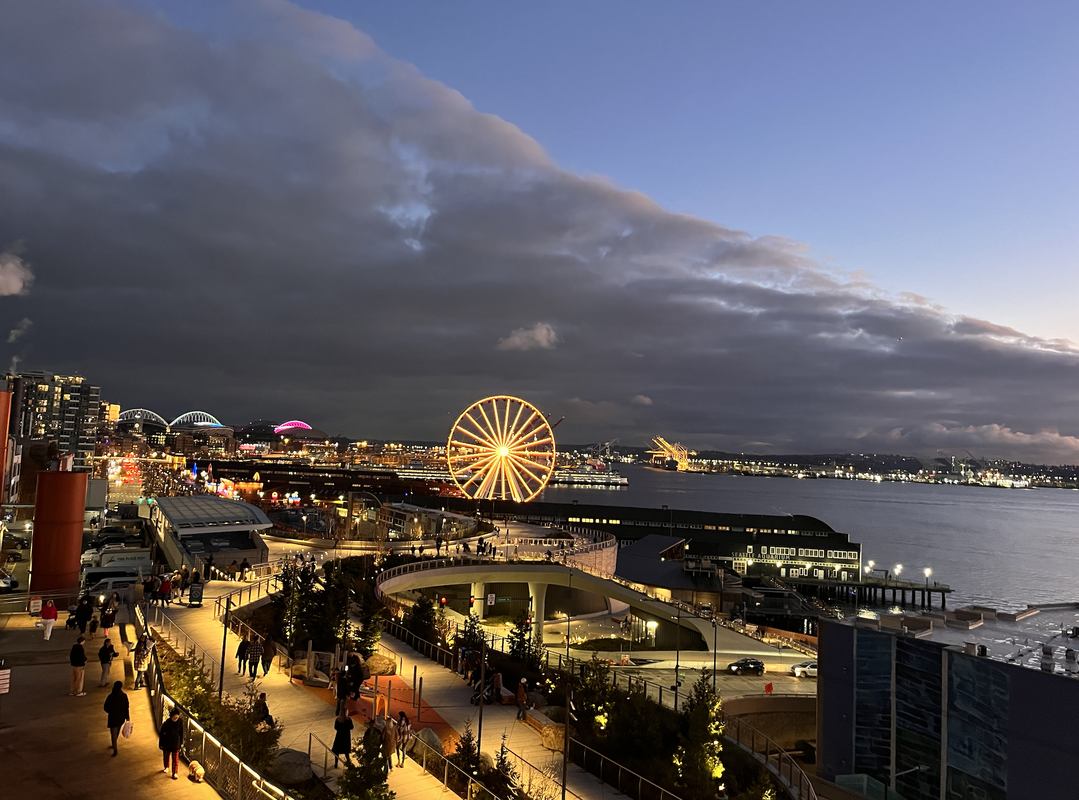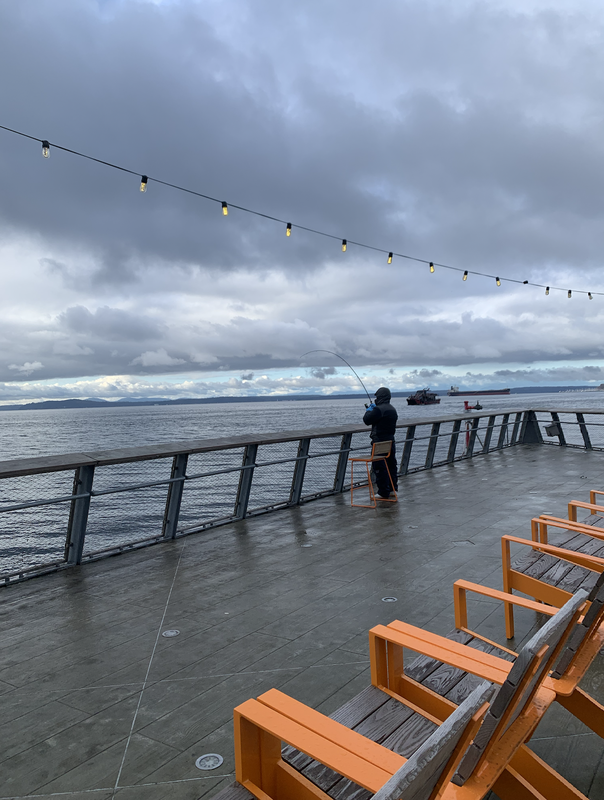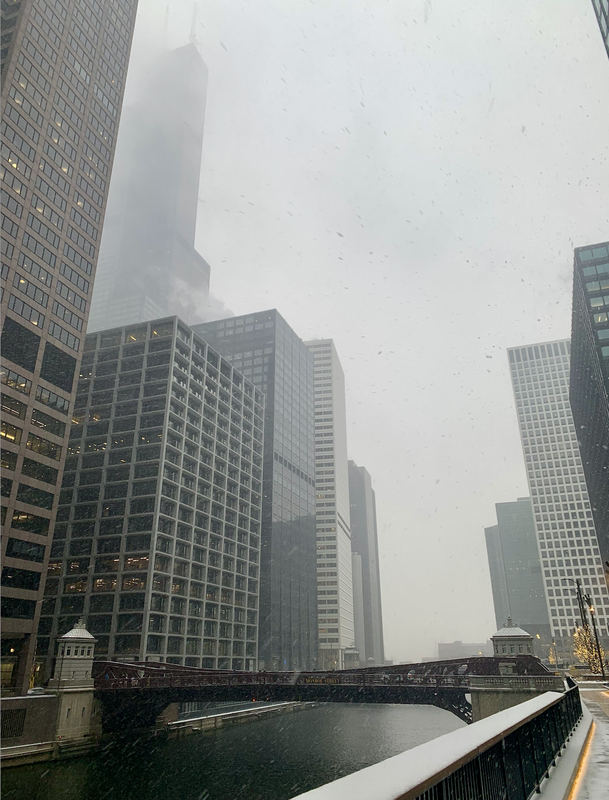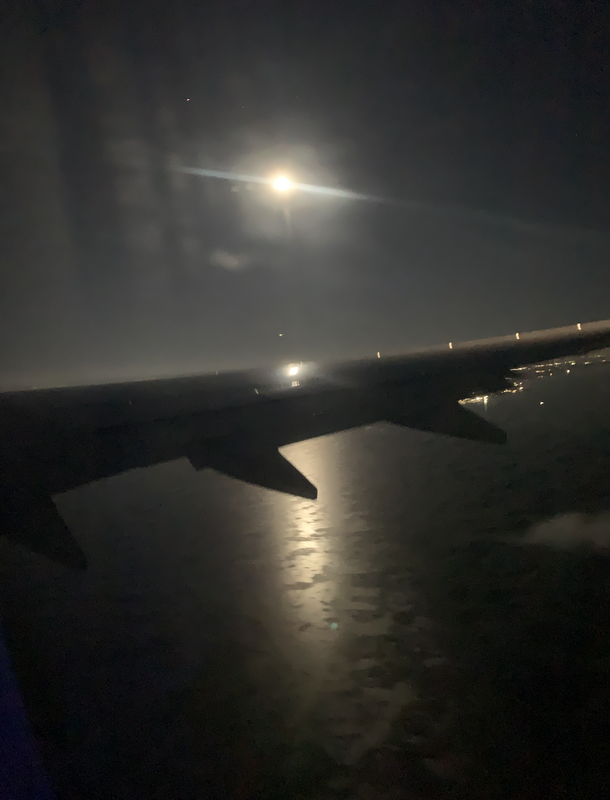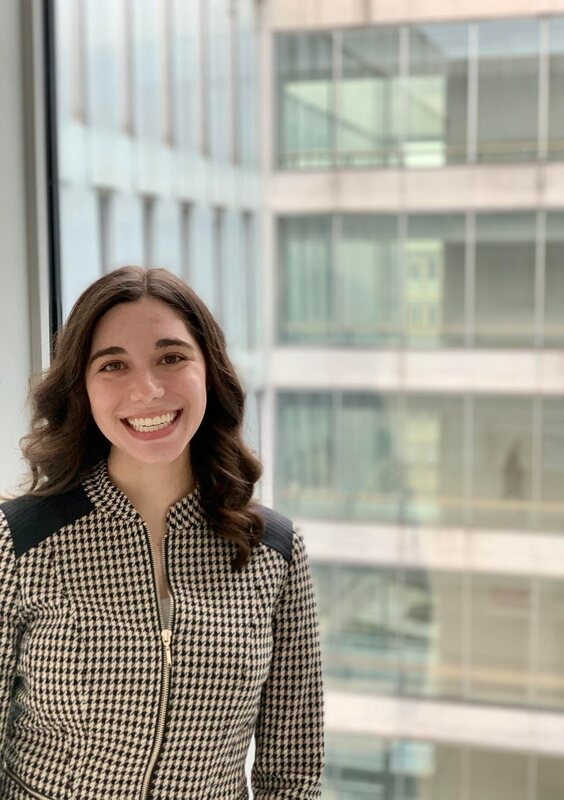|
Or, On Two Polish Confessions, One German Mass, and a NAFTA Lunch When I was nine years-old, I was a co-student representative for my fourth grade class to our elementary school’s Student Government. For children, I think all of us in Student Government took our roles a bit more seriously than expected, but that was especially true for my co-representative and me. In addition to having a real policy platform – mine was for a student-run newspaper and recycling education – we took complaints from fellow students very seriously. After our grade started being reprimanded by the teacher aides in the cafeteria more often for loudness, we noticed that it was the new walls that had been built around the cafeteria which were creating echoes, and the aides were being disproportionately mean in how they were responding to some of the students. So, the co-representative and I scheduled a meeting with our school’s principal and the aides to discuss our concerns. Even back then, I was so convinced of the necessity of having empirical evidence to support my claims before making an argument, that I asked my dad (who was on the School Board and made the mistake of encouraging this type of behavior by asking my sister and I at dinner about things we would do to make our schools better) how I could come up with a math equation to prove that the cafeteria loudness was because of the walls’ echoing, and not the students. When he explained I would need calculus to do that, I asked him to teach me that. When he explained I would first need to understand basic algebra, I asked him to teach me that instead. If memory serves correctly, he did attempt to show me a few basic equations the next morning (which went over my head) and I realized that I wouldn’t be able to use math – at that time – to make my position. My co-representative had, unbeknownst to me, come up with an even better solution for making our case. He kicked off our meeting with the principal and all the “adults” by reciting his own version of the Gettysburg Address, complete with swapping in our names, changing the number of scores since the American Revolution, and fitting the language to our rather different situation! Our meeting was productive, the adults were impressed with our maturity and how we took our jobs are representatives and engagement with democracy so seriously, and ultimately things improved. Our elementary school had lots of branding around “Character Counts,” including the creation of pin badges. A few days after the January 6th Insurrection, I was still home from my year at the LSE (and would remain home for some time because of the new alpha Covid strain in the UK at the time) and cleaning out my childhood closet. I came across a satchel bag I had carried my books in throughout 3rd grade, pins on “Citizenship” and “Responsibility” still attached. Oddly, this stirred up a lot of emotions for me. I’m sure myself and every other American had a lot of feelings, mixed feelings, in the weeks after January 6, 2021, and the impeachment proceedings. One thing that stuck out in my mind was how far away from these basic values every part of government had become. How distant were days when two enthusiastic nine-year-olds could try to make the most of their representative positions and really feel that they were embodying the reality of American democracy. And, how I had no idea if these types of values were still being taught in school, or how one even could when there’s such a dearth of representation of character in nearly any institution. My argument in this piece is that the time from Election Day 2024 to Inauguration Day 2025 has similarly represented more than an interim. We were all Lame Ducks in this period, regardless of if people were happy, sad, or indifferent to the result and what’s to come, or what’s being left behind. I spent Election Night 2024 in Berlin, watching the results roll in at an official watch party with panel after panel of German party representatives, politics watchers, and high-level think tank analysts. I decided in the few days afterwards that, since I was going home from Europe for Thanksgiving anyways, I needed to soak in as much time in the US as possible. Mostly for my friends and family, who I miss very much, even if I’m out living a great life for myself doing what I love in Europe. But it was also to understand the America of this moment, as a person and as a political scientist. This blog is longer, more heartfelt, and personal than most of what I write. It’s because I think America deserves no less, and at least an attempt to capture what this interim period was like, both for those who are politically rejoicing, and those who are mourning. The blog also deserves deeper observations than the surface-level ones I could have also spent time dwelling on. (For instance, since when did everyone start reverse parking into parking spaces? I didn’t get the memo over in Europe.) I will leave my academic thoughts for future research work, which I hope will merit some grant investments and co-authorship one day on how recent events altered how Americans conceptualize foreign policy. In the meantime, I turn now to what I experienced traveling to Chicago, rural Massachusetts, South Carolina (via DC), Seattle, and back to Chicago again. Many friends and family have tried to very honestly tell me I’m probably the last person who can understand, since I’ve spent the better part of the past six years living out of the United State in continental Europe and the UK. I’m an insider looking out, not an outsider looking in. I leave this both as a caveat and a warning for finding too much meaning in what I’ve learned. But it’s meant a great deal to me, and I think it might mean a thing or two to someone else. In an effort to understand, and also to give thanks to the friends and family – a few of whom I agree with on everything, a few of whom I disagree with on everything, and the majority of whom we have some things but not others we agree on – who will always make America my home, let’s begin in the calm and cold of December. Christmas Carols & Lights One thing I always enjoy about returning home is how quiet and peaceful it is, especially in the wintertime. In true Midwestern fashion, my small hometown is closer to the prairie forest preserves than downtown Chicago, although it’s simpler to say I’m from Chicago. Amidst family time and catching up with friends, returning home also means enjoying walks in the fresh air, the harmony of the prairie ground, and occasionally being able to hear coyotes, illegal jet skiers on the frozen river, and early morning hunters. I like the constancy of returning and how very little seems to change. I hated how boring it was as a kid, but as an adult who is returning from another continent, there’s nothing more relaxing than knowing that nearly everything will be the same as it was. In visiting rural Massachusetts as my first stop out of town, I noticed something unexpected for the first time. While I’ve always been impressed by Chicago’s over-the-top Christmas lights and displays on many properties, I think New England does it better! Not only are there more houses that put up holiday decorations, but they are really well done and fanciful without being overbearing. I also like how New England houses have a tradition of lighting candles in each window, something I had only seen in movies until this year. That being said, there is nearly nothing as specials as the Chicago Botanic Garden’s Lightscape celebration for the winter holidays. What also struck me in rural Massachusetts that escaped me in my hometown was the pushback against Robert Putnam’s infamous “bowling alone” thesis. Community members not only come together to discuss faith, local politics, and HOA matters on a weekly or daily basis, but seemed to know and care about one another, even if they disagreed. It’s been a while since I had seen strangers make so many in-real-life efforts to get to know others, share food, and tell stories. It was uplifting and gave me hope in our communities and societies. We may still be more politically polarized than ever before, but there seems to be a willingness to still communicate and understand. At least in small towns. And perhaps it is out of necessity instead of willingness, but it’s still there. In one of these discussions, a political comment I heard is still sticking out to me, all these weeks later: “I mean, I voted for Biden twice and what has that gotten me?….oh whoops, I mean Biden then Harris, I still have whiplash. Well, in some ways I did vote about Biden twice.” The political scientist in me wants others to explore how many voters in general really felt a vote for Harris was about Harris, or about Biden… So little changes in my hometown. That being said, there was one notable change post-election that immediately leaped out to me. The Ukrainian flag that had been hanging with the American one outside my hometown church for more than two years had been taken down. I assumed it might be a direct consequence of the election, but after attending mass my first weekend back, I gained a different understanding. The Polish priest who had presided over the town parish for some time had passed away since this summer. He had kept the Ukrainian flag waving in our town ever since Russia’s full-scale invasion in February 2022. While I mostly grew up at an Italian-American church in downtown Chicago, and not in my hometown parish, I had started going to confession at my hometown church in the last few years. The Polish priest was nearly always my confessor on the rare occasions I returned, and I appreciated how every confession turned into him telling me a story about his childhood in Soviet-era Poland, despite these stories having no connection to the sins I confessed or spiritual themes I brought up. I had gone to confession a few weeks after January 6, 2021, and while I was still awaiting better circumstances to return to the UK for my studies. I was feeling distraught about the state of the US after Trump had been impeached but not convicted, and confession felt like the answer. I explained part of this to the Polish priest, and that I wanted forgiveness for how I was feeling about those on the other political side; those who were defending Trump after we came so close to losing the hard and soft institutions of our democracy on January 6th. “That’s not how this works,” my priest rebuked me. “What? I thought that’s exactly how confession works.” “You only receive reconciliation for sins. What you’ve confessed isn’t a sin. God permits us to have judgements about others, especially on actions they’ve taken that go against our morals and values. You are allowed to have negative opinions.” I continued to explain how I was feeling, and how I was worried our country might never come back together, both if Trump never faced repercussions for his actions, and in the likely event he came back to politics since he hadn’t been convicted. The priest went on say that I don’t get to take others' sins upon myself. That God forgives instantaneously, but his reconciliation is with those who have strayed away from him. Human reconciliation is more complicated, and longer. He shared how he felt his home of Poland was still experiencing a crisis of understanding its identity and coming together after its Soviet era. That being free from the USSR had saved it, but it also forced Poles to sit with, struggle with, and answer questions they hadn’t been allowed to ask before. We were sitting there across several generations, two different first languages, and many different perspectives, but he taught me something about humanity in that moment. Unity can’t be declared, or something to be led out of sometimes. Instead, it takes a lot of patient moments praying for good to prevail, and working for those who are brave enough to keep virtue in their hearts to have the chance to make a meaningful difference when the time finally does come. For my politics and me, we will still be waiting to see a day on the other side, but holding a candle to remind others of the values of liberty, freedom, and minority protections and human rights which democracy defenders have continued to web into our national culture since the American Revolution. And while the Ukrainian flag may no longer be flying in my hometown and many other American cities anymore, those of us who believe Ukraine has and continues to defend Western democracy since 2014 won’t give up on its right to exist, and in the value of Ukraine to all of our collective, free future. A lively DC I left Boston for South Carolina to see my extended family via DC. Traveling through Dulles on one of the busiest travel days of the year was a cultural experience in its own right. On top of the general busy-ness, I was struck by how nice people were. Both when they accidentally bumped into you, or vice versa, and chatting while waiting in long lunch lines for some food before the connecting flights. As I left one of many Starbucks options in my terminal, a Southern man declared the most genuine “pardon me, y’all” I have heard in a long time, including the few years I lived in Atlanta. I spontaneously texted one of my closest friends who lives in DC and asked if she just happened to be in Dulles at the same time as me. “I don’t live in DC anymore!” she texted along with Christmas greetings. I had forgotten that she moved for a clerkship at the same time that I moved to Berlin from Milan. How quickly all of our lives were changing and moving at the same time, especially friends I have in the political world. Wall Street in SC My time in South Carolina was mostly about family. All about family, and making new memories in the house I’ve known the longest in my life. Looking out from the top window on the staircase at the same street I used to daydream about as a toddler and a young kid. It makes me happy now to look out the same window, because I’ve truly grown up to be cooler than I ever even thought to imagine as a child. I think my younger self would be amazed I speak multiple languages, have had the good fortune to live in several countries and make friends around the world, and get to do work I love every single day. The drive from Georgia to South Carolina and back again is also so familiar that I wouldn’t need a roadmap. I used to travel from Atlanta to my grandparent’s home for long weekends while I was studying at Emory, and their proximity was such an understated blessing of going to university there, which had never been the plan. A reminder of how some of life surprises look like they were always meant to be; like life had planned itself better than you could. A small joy that I used to have in coming to my grandparents’ house was to read their local newspaper. I always found it interesting to see what the big “policy” issues of the town were – housing concerns, a lack of workers, too many tourists, new hot spots to visit – typically a microcosm of the “bigger” issues that are covered in the traditional outlets. This time, however, when I asked my grandfather at breakfast if I could see the local paper for the day, he told me they’re now out of business. “Why, why did you want it?” “Because I wanted to read it!” “You really liked reading it?” “Yes, it’s one of the things I always like about coming here.” “Oh, well apparently you were the only one, and you don’t even live here! They couldn’t make enough money so they closed.” Like my childhood-student-representative desire to see students get to publish their own thoughts on a smaller slice of the world, I suppose I am one of the last steadfast supporters of local printing and reporting, although I’ve never put money where my mouth is as I’m wholly reliant on the media subscriptions my universities have offered me over the years. Another appendage of democracy which seems to be losing its prescribed value. “Well, I guess I’m just left to the Wall Street Journal then.” Some other musings from my time in the South: I forgot how Southerners distinguish between their American family members in the North and the South, that the division of the country is still so much more omnipresent and epistemic there than in any other region. Southerners have an unrealized tendency to separate “family” from “my Northern family.” I also forgot just how exquisite Southern cuisine is, how nice it is to clothes shop in stores where it feels all the workers are hyping you up and truly trying to find you options that make you feel like yourself, and how delicious Southern ice cream can be. It was also telling how much Hurricane Helene’s devastation came up so casually in conversation. It left so many communities reeling and still affected, the same way the Palisades fires predominate conversations only a few weeks later, and what they mean for our future climate, health, and economy. Farewell to the Chief Back to the normalcy of Chicago, working remotely on my PhD, and catching up with some old friends, I was struck by how hard it was to watch America’s sendoff to Pres. Carter. As an Emory alumna and someone who volunteered at the Carter Center for a year, he left an impression on me as a person. Both getting to witness his humility many years after being the most powerful person in the world – I would see him eat normal cafeteria meals alongside the volunteers if he and Mrs. Carter were in town – and seeing his commitment to teach today’s young leaders about American politics. While his politics were despised at the time, much ink has been recently spilled on how his presidency was better than remembered. If nothing else, he played an important role in trying to center human rights as a part of America’s foreign policy and trying to help a new generation of leaders see human rights as a fundamental and worthwhile part of America’s story and destiny. Which is why the stark contrast of the solemnity of America’s farewell ceremonies and stoic effort to bring his remains to the Rotunda – the same one where Trump is inaugurated today – to Trump’s press conference at the same time where he did not rule out military action against Canada, Panama, and Greenland/Denmark is so blinding. As an IR scholar, I think we’ve officially entered a second Cold War era, and one where the US is willing to treat even allies as adversaries in the 4D game of international chess. This isn’t only antithetical to Pres. Carter’s image and memory, but those of nearly every postwar president which treated the transatlantic relationship as something sacred and special, if not annoying but necessary.
Island Thoughts While some of my friends back in Italy went to tropical climates for the holidays, I definitely had the coldest beach experience of the bunch. After my time in Chicago, reminiscing and working, I traveled West for the first time in eighteen years. My destination: Seattle, WA for a girls’ weekend with one of my closest friends from college, who I hadn’t seen since our senior year spring break turned into a permanent Covid break. Having never been to Seattle or Washington State, I was struck by the hipster attitude it’s known for, high prices, but also the amazing skyline. I don’t know what I was expecting from Seattle, but whatever it was, the city far surpassed it! I loved seeing my friend’s favorite spots in the city and her neighborhood, and access to Puget Sound and the Pacific Ocean is just amazing. From the hills to the forest, the Cascade Mountains and Mt. Rainier in the distance, the fresh air and surprisingly clear water, it’s spectacular. (Plus the coffee and fresh fish are top notch :) ). My favorite part of the trip, however, was how we made use of a rather sunny and warm day (for January in the Pacific Northwest) to visit Whidbey Island. Only a long drive and ferry ride away, we got to see a terrific view of the Pacific Ocean from several different angles, explore the Deception Pass State Park, and receive ominous text messages from our data providers that we had crossed into Canada (we hadn’t, but we were very close!). Lunching with NAFTA After exploring the incredible vista from Deception Pass Bridge on Whidbey Island, my friend and I went to the only real lunch option we had – The Mill. For context, The Mill is advertised as an American-Mexican restaurant with a menu size that rivals The Cheesecake Factory and no discernible way of specializing in both American and Mexican cuisine. It is next to the Auld Holland Inn, a Dutch-inspired hotel that even boasts remakes of the giant wind mills. Inside The Mill, it appears that two completely different interior designers controlled its renovation. One put up the characteristic Instagram-y neon lights and floral décor, complete with the most amount of “inspirational quotes” (Be Brave; Hard Work Pays Off) in a women’s bathroom I’ve ever seen. Another focused more on the Dutch, American, and Mexican cuisine theme of the joint, complete with the old wood and fake stones that must have characterized the inn it used to be. (If anyone famous enough to ever get a “Lunch with the FT” column is reading this, The Mill might be the perfect spot for their writers; Edward Luce, hit me up for more recommendations.) It was a true Alice-in-Wonderland like experience. We weren’t quite sure what was meant to be real and authentic, and what was kitsch. It also managed to be our most expensive meal of the entire weekend, but lent itself as a great spot to catch up while also being curious about the décor! I also couldn’t help but feel like I was lunching with NAFTA, between the weird coverage of American and Mexican cuisine, and close proximity to Canada. When I first landed in Seattle, the first thing I saw was a giant group of American troops waiting for their baggage. I joked to my friend when I met up with her that I was wondering if we were invading Canada already (I half-joked, I was unfortunately half-serious too.) Fortunately, for now at least it’s just that there is a Navy base close to the border. Given that it was Trump himself who negotiated USMCA – the replacement trade deal to NAFTA – which expires in 2026, it will be ~interesting~ to see what becomes of American-Mexican-Canadian ties heading into our joint 2026 World Cup. German Mass Flashback
As I prepare to return to Europe from Chicago, now that I’ve rested from my own unexpected bout with the flu and norovirus, I can’t help but think about Election Night itself and the week afterwards. The panel after panel of German party officials I watched that night gave me absolutely no confidence that German politicians were up to the challenge that either administration would confront them with, but especially a Trump one. This has been complicated by Musk’s wading into the upcoming German elections, and shocking divisions in the current traffic light coalition over funding to Ukraine. The US is heading for a lot of tumultuous years ahead, not that the last few have been particularly peaceful or unifying. But Europe is heading for even choppier waters ahead, particularly since Germany is struggling economically and politically to take on a leadership role in the EU at this critical time. I went to mass the Sunday after Trump’s election and the collapse of the traffic light coalition. It was one of the few churches in Berlin that offers a mass in English for immigrants, most of whom are Nigerian, American, and British. The Nigerian priest – who was truly wonderful and always had great anecdotes to share – saw how fearful the congregation seemed after so much political upheaval and uncertainty around Ukraine, European energy and security, and economic growth. He asked us during the reading of the Prayers of the Faithful to name our fears aloud, which many in the congregation did. Then, we were instructed to sing all the verses of the final songs, and with joy in our heart. Mass ran no less than 30 minutes overschedule with all of this emoting and singing. One of my closest friends in Berlin had agreed to wait for me outside for a coffee after my mass. When I finally emerged he said, “What the heck were you guys doing in there for so long.” “Singing with joy from our hearts,” I said with a laugh. “What?” “You know times are bleak when the priest makes the German mass sing with joy from their hearts!” The whole episode reminded me of how important the words of faith and spiritual leaders can be in dark moments, even if they are impersonal. I thought about the Polish priest back home, who I didn’t yet know had passed away. I thought about how maybe I might return to confession with him, and hear if he had any advice for navigating the next four years as someone feeling discouraged by the state of the world, but also committed to trying to understand it in a scientific and empirical way – the same way I wanted to approach being a student representative all those years ago. I have no follow-up confession story with him, except my second favorite, which was that one time I listed out a long list of my sins in an act of reconciliation. His point-blank reply was “is that all?” As the news returns to lots of daily chaos and confusion, may we find that joy in our hearts each day. Each of us reminded of the values that matter to us most and the people we work so hard for. And finally in returning to the original theme of childhood thoughts on democracy and being back home, I started to wonder how the youngest of Gen Z feels about this interim period. As an “old” Gen Zer, I called my teenage brother to see if he had any thoughts or feelings about Inauguration Day. He said of course he did, but he and his friends don’t talk politics and they aren’t supposed to in school. He said he wished he knew more about what was going on, and that he felt weird about the inauguration because everything seems so “two sides.” I don’t want to speak for him, but he seemed to be picking up on how polarized America is, and has been since he was very young. He said one thing he was sure of, however, is that he’s happy to live in a democracy. I couldn’t agree more.
0 Comments
Your comment will be posted after it is approved.
Leave a Reply. |
AuthorSienna Nordquist is a PhD Candidate in Social and Political Science at Bocconi University. She is an alumna of LSE's MSc in European and International Public Policy and was a Robert W. Woodruff Scholar at Emory University. Archives
April 2025
Categories |
